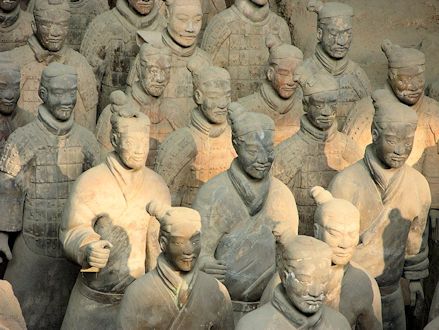
By 213 BC, his prime minister, Li Su expanded the totalitarian state by burning entire libraries of bamboo scrolls in an attempt to control free thought. The whole of Chinese history and all philosophical thought were removed, with only legal, medical and agricultural texts spared.
Seven years after Emperor Chin began his quest for immortality, the mercury began to poison his body and mind. His kidneys almost certainly began to fail. In the seventh month of 210 BC, at the age of 50, the first emperor of China died. His dynasty did not last. A coup attempt was made soon after he died and revolution swept away his dynasty just a few years later, but China lived on.